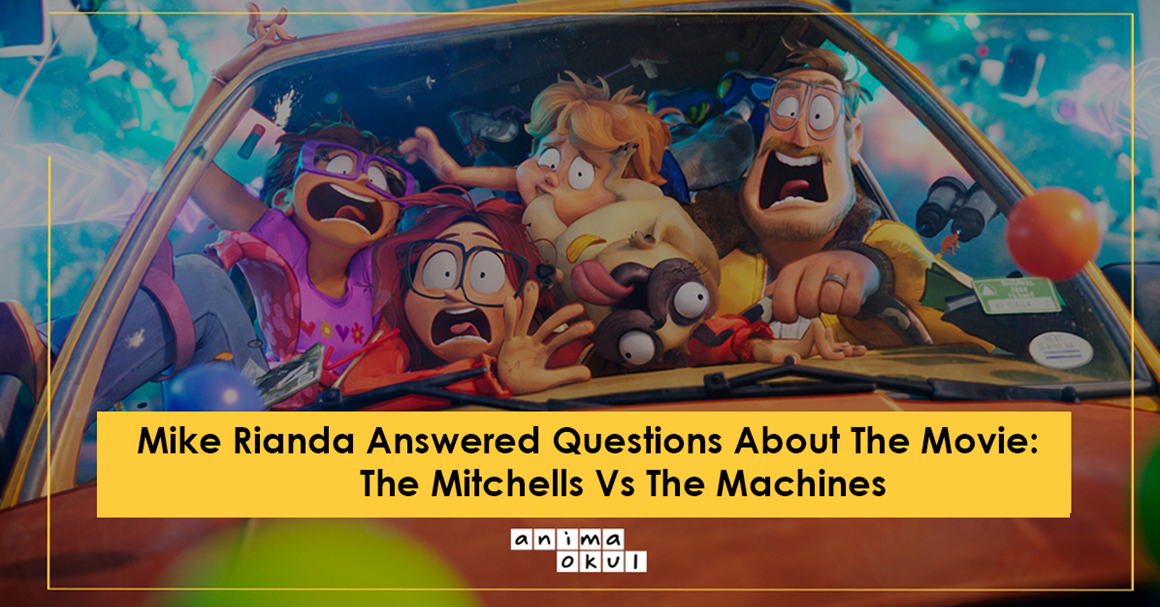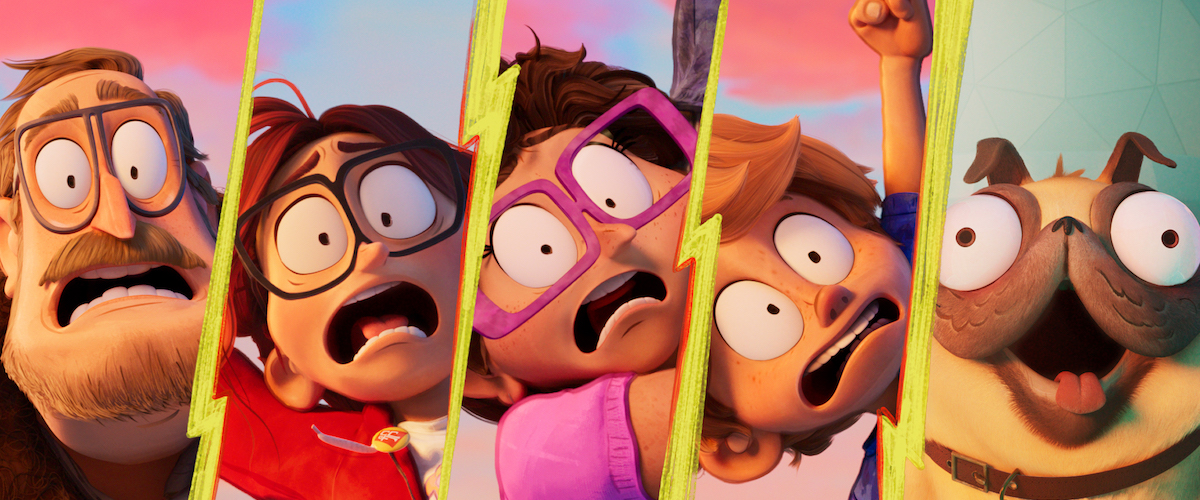MIKE RIANDA ANSWERED QUESTIONS ABOUT THE MOVIE: THE MITCHELLS VS THE MACHINES

Gravity Falls creative director Mike Rianda's feature film directorial debut The Mitchells vs The Machines, garnered great attention when it aired on Netflix.
Sony Pictures Animation's The Mitchells vs. The Machines is now streaming on Netflix, after a complicated, 6-year path of name change, name reversal, delayed release. A brand new animated comedy about a family's struggle to reconnect, produced by the dynamic, Oscar-winning duo Phil Lord and Christopher Miller behind Spider-Man: Into the Spider-Verse; received great acclaim from the audience.
The film is written by former Gravity Falls writer Mike Rianda (who is also the series' creative director) and Jeff Rowe, who serves as assistant director.
Sony first met Rianda in 2015 for the opportunity to make an original film. Rianda admitted to Sony he was "overflowing with ideas" but had nothing on his mind at the time. When he was forced to find something viable, he combined what he loved most: his crazy family with killer robots.
Having struggled to transition from television animation to feature films, Rianda spoke about his journey in a live interview just before his movie's April 30 release.

The movie has gone through quite a journey, including a delayed release date, name change, and a last-minute switch to Netflix by skipping movie theaters. Are you satisfied with the final version of your movie?
Yes, definitely. People ask, "Are you worried about the delay?", I say, "I'm glad I don't hate!". I am proud of the movie. I think the team is proud as well. That was one of my biggest fears, because there are so many talented artists in this movie and if you waste it, you're wasting their time too. I just want those people to be proud of what they've done and feel that their time is valuable.
You are directing a feature film for the first time. How much pressure did you feel?
There was too much pressure. Part of the pressure we put on ourselves to make the job the best we can, of course.
I strived to encourage team members to contribute on their own, taking action with enthusiasm even in negative times. These are great artists and if they can add something to the movie, you want to encourage that. "No, I'm the director!" I've seen a lot of productions pretending to be. For me, "Am I the director?" The question is more dominant and I wanted everyone to feel like they could contribute. Just because it's my opinion doesn't mean it's the best idea. So the team with the best idea wins.

You come from the world of television animation and are directing an animated movie for the first time. A big leap after Gravity Falls. How difficult was the transition?
It was crazy! This is wildly different because it requires so much more care. The audience should be interested in a 90-minute movie, not a 22-minute television episode. Because if they're not interested, they're going to close the movie. A television show ends so quickly, it either works or it doesn't. In my own experience, if you're on TV, you should be used to moving fast. In movies, people sometimes think, "We're making a movie, relax, work comfortably". Relaxation definitely has value, but it's important to remember that you're remaking the movie at every stage of the process. Although the pace of television was a bit tiring, the movie was also incredibly valuable to me. It taught us that we can iterate really quickly. We were like, "Okay, the stage isn't working. Let's try again."
You have to make quick decisions on TV. Did this decision-making style help you in the movie?
It's been incredible. I once heard that a storyboard artist made fun of a feature film director for his decisions. Your job as a director is to make decisions. There are always time constraints on television, too. But even if you're working on only one thing, the project always has a deadline. You have to prioritize your work. For example, when you're going to show a work in front of an audience, you really need to understand what is good enough and what needs to go through 10 iterations. Television has been incredibly valuable in helping me understand this because at a certain point you just have to let go. We have one day, so we can only focus on this thing.

Were there times when you had to relearn, or when you had to consciously change your approach to things because your TV habits didn't work?
I was used to working as "You make these storyboards, you deliver them, you turn them into animation". The crew I worked with on the film did not like this attitude. I was used to the television environment and suppressing their creativity. He trusts them and says, “Yeah, try whatever you want. If you have an idea, work with it.” A few days before we had to end filming, we talked about "if things don't work out, maybe we'll go back to storyboards". Of course, we didn't have to, we really brought the film to life. This brought out the potential of all the artists.
What was the biggest challenge for you in this movie?
The biggest challenge in the movie was making sure everything went smoothly. So, if there is a joke, make sure the joke is funny. If there is a character, make sure the character is memorable. If there is an emotional scene, make sure it engages the audience properly. At the macro level, getting the audience to need a movie. Sometimes we were too brash about the emotions at the beginning of the movie. If it came out that way, you'd watch the movie and say, "It's just a bunch of silly jokes. What am I watching?" you would say. Later we realized that if we lock the audience emotionally early, then we go in.
It's like seeing the audience hold their breath when Katie's laptop breaks. If we didn't impress you in the beginning, the first 15 or 20 minutes, the movie didn't work and it's a disaster. But if it works, we have a chance. So that was probably the hardest and biggest thing.
What do you hope the audience will feel when they watch this movie, what do you want to leave them with?
This movie is really about family. I hope that after watching the movie, we can make parents understand their children better, or make children learn to appreciate their parents more, or learn that relationships are difficult to work out romantically or as a family. Because it's worth it. Relationships are what make us unique compared to technology. Everything we have is worth fighting for and for them. Basically, I just want to improve the world. This is my only purpose.
Source: Awn